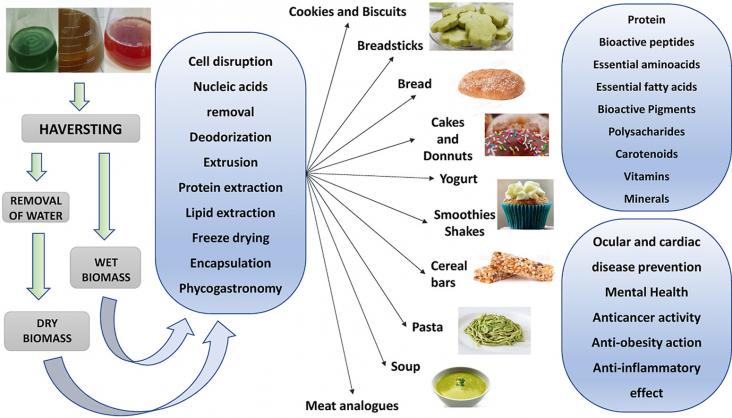Elsevier,
Josiah O. Kuja, Anne W.T. Muigai, Jun Uetake, Chapter 8 - Metagenomics: A resilience approach to climate change and conservation of the African Glacier biodiversity, Editor(s): Catalina Lopez-Correa, Adriana Suarez-Gonzalez, In Translational and Applied Genomics, Genomics and the Global Bioeconomy, Academic Press, 2023, Pages 153-173, ISBN 9780323916011
This content aligns with Goal 15: Life on Land and Goal 2: Zero Hunger by investigating how new genomic applications can leverage agricultural production and how the utilization of bioresources like cold-active enzymes and freeze-resistant proteins from glaciers may help develop more drought-resilient plants.
Edible macroalgae (i.e., ‘seaweeds’) are a nutritious and sustainable alternative to animal-based proteins.
This article contributes to the debate around the use of participatory approaches by giving a tool (cameras) to the most marginalized to revitalize traditional foods (mostly nonmarket and even noncultivated) as a response to food insecurity and possibly malnutrition.
This Article supports SDGs 3 and 13 by showing that plant-based beef alternatives could reduce the carbon footprint of the US food system, but highlights that reductions in other envirnmental dimensions are dependent on repurposing of resources.
Partner content
World Bank
These dashboards present data from the World Development Indicators (WDI) that help to monitor the Sustainable Development Goals (SDGs).
The objective of this paper was to upport the development of an integrated water, sanitation, and hygiene (WASH) and nutrition, social, and behavior change strategy aimed at reducing stunting, formative research was conducted in 2 program sites in western Kenya.
Concerns over the impact of global meat production and consumption patterns are leading to increasing interest in alternative sources of protein.
The Growing Resilience action-research project as detailed in this paper, aims to help support the health and food sovereignty of Wind River Indian Reservation (WRIR) communities by providing families with information for monitoring their individual health and by supporting families in improving their health by growing home food gardens.
The results of this study show that children of the USAP region as a whole would benefit from an increase in their overall intake of fruit and vegetables and developing strategies to promote a greater frequency of consumption of all F&Vs, in particular traditional fruits and vegetables prepared by traditional practices, should benefit the health of people in the Pacific.

Background: The environmental and social problems associated with increasing world population and industrial development have brought concerns related to water and atmospheric pollution, climate chang
